36 Arguments for the Existence of God - [37]
“Contemplation of one’s mortality can addle even the clearest of thinkers. It’s a bit like religion in that way. In fact, it is religion.”
When Cass had dared to suggest something along similar lines to Nanovitch, the man had serenely smiled and said, “It’s not religion. It’s molecular biology.”
“By which you mean,” said Roz now, “that fear of death gives a lot of wishful oomph to the God hypothesis.”
“Exactly.”
“All the more reason to try and cure our mortality with scientific advances. If we succeed, we’ll deprive the heaven-mongers of their cruel false promises.”
“The afterlife of the skeptics,” Cass said, smiling.
“Which is all the afterlife that we need! This!” And she threw her glass of Rioja back like a pro, taking the opportunity to remind Cass, after she swallowed, to “drink plenty of red wine. The resveratrol promotes longevity. Which reminds me.”
She reached into her purse and pulled out a baggy bursting with pills and capsules: gelatin globules filled with yellow viscous fluid or reddish oils, shiny black pellets and lozenges of mahogany brown, and then some homemade-looking capsules with powders ranging from white to sandy tan to mocha brown. There must have been twenty-five in all.
“You swallow all that?”
She answered by getting them all down with amazing dispatch, using her water, and then taking a long swig of resveratrol as a chaser.
“This is nothing! You should see what I swallow in the morning!”
“Do you know what you’re doing?”
“Do any of us?”
“But you’re doing something extreme here. You could be doing yourself more harm than good.”
“Look, we all know what’s going to happen if nature is allowed to take its course. This is what strong intervention looks like. That’s what I’m interested in. Strong intervention.”
“You take even more than that in the morning?”
“I take vitamins, antioxidants, and hormones three times a day. The biggest dose is in the morning. The smallest dose is what you just saw.”
“What are you trying to do to yourself, Roz?”
“Live a very long time.”
“You could be killing yourself.”
“Have a little faith. I’m not doing this blindly. I consult with molecular biologists and gerontologists.”
“Do they know what they’re doing? How much real science is this based on?”
“The science is incomplete, sure. It always is. If we wait around to get it, we’ll never live to see it gotten. The best we can do is experiment with ourselves.”
“I don’t like the sound of that.”
“Life isn’t a randomized, double-blind, peer-reviewed clinical trial. Big gains require big risks, and we’re after the biggest gain of all.”
Cass decided to say no more about Roz’s experiments on her body. She always was a risk-taker and she always will be one.
“Have you thought about the other high-tech way to cheat death?” Cass was thinking of the position advocated by another participant at Auerbach’s Rialto dinner, a philosopher named Nicholas Duffy. Duffy had been the only one to challenge Nanovitch at all, though he was more or less on the same wavelength. “If you could reverse-engineer the neural program that constitutes a person’s mind, you could upload it to a less-vulnerable physical medium,” Cass said to Roz. “There could even be multiple backups, in case of a power failure or a nuclear attack.”
“You mean just backing up our software, and throwing away this beautiful hardware platform we call my body? Are you kidding, Cass? I don’t want to look into the mirror and see a rectangular screen! I don’t want to run my virtual fingers across your shivering keyboard or have you uploading into me for a virtual roll in the hay! Give me my body or give me death!”
This was turning into one of the conversations with Roz when Cass wasn’t sure whether she wanted him to be laughing quite as much as he was. Meanwhile, the tapas had started to arrive, with their waiter theatrically reciting the names of the nine dishes as he balanced them expertly around the candlelit table.
“This question of preserving our software or our hardware reminds me of those ancient Judeo-Christian debates on whether an immaterial soul survives the death of the body, or the body itself is resurrected when the Messiah comes,” Cass said, watching Roz tuck into the tapas as if there were no tomorrow, even though she was betting on several centuries’ worth of them.
“What did the ancient rabbis say?”
“They’re pretty much on your side on this one. They choose the body over the disembodied soul.”
“Glad to hear it. Anyway, Cass,” she continued, washing down a green-lipped mussel with some more Rioja, “the sooner you get me in touch with Nanovitch while I’m here in Cambridge, the better. And what about that agent of yours?”
“Sy Auerbach? What do you want with Sy Auerbach?” It occurred to Cass that maybe Roz had a book she had written or was planning to write. Everybody has written or is planning to write a book.
“Auerbach strikes me as the kind who’d want in on immortality. I read that blog of his. He’s our kind of guy!”
“Okay, I’ll give you his coordinates. He’s in New York, of course.”
“I’m on my way to New York! Maybe he’d want to meet me personally! I’d love to be one of the regulars on his blog.”

«Ашантийская куколка» — второй роман камерунского писателя. Написанный легко и непринужденно, в свойственной Бебею слегка иронической тональности, этот роман лишь внешне представляет собой незатейливую любовную историю Эдны, внучки рыночной торговки, и молодого чиновника Спио. Писателю удалось показать становление новой африканской женщины, ее роль в общественной жизни.
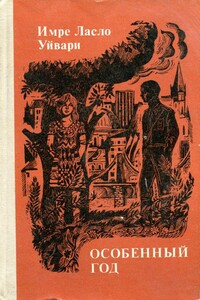
Настоящая книга целиком посвящена будням современной венгерской Народной армии. В романе «Особенный год» автор рассказывает о событиях одного года из жизни стрелковой роты, повествует о том, как формируются характеры солдат, как складывается коллектив. Повседневный ратный труд небольшого, но сплоченного воинского коллектива предстает перед читателем нелегким, но важным и полезным. И. Уйвари, сам опытный офицер-воспитатель, со знанием дела пишет о жизни и службе венгерских воинов, показывает суровую романтику армейских будней. Книга рассчитана на широкий круг читателей.
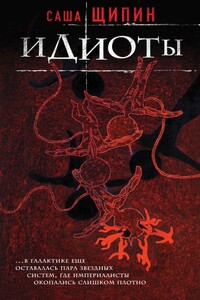
Боги катаются на лыжах, пришельцы работают в бизнес-центрах, а люди ищут потерянный рай — в офисах, похожих на пещеры с сокровищами, в космосе или просто в своих снах. В мире рассказов Саши Щипина правду сложно отделить от вымысла, но сказочные декорации часто скрывают за собой печальную реальность. Герои Щипина продолжают верить в чудо — пусть даже в собственных глазах они выглядят полными идиотами.
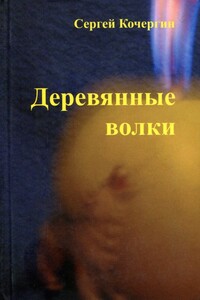
Роман «Деревянные волки» — произведение, которое сработано на стыке реализма и мистики. Но все же, оно настолько заземлено тонкостями реальных событий, что без особого труда можно поверить в существование невидимого волка, от имени которого происходит повествование, который «охраняет» главного героя, передвигаясь за ним во времени и пространстве. Этот особый взгляд с неопределенной точки придает обыденным события (рождение, любовь, смерть) необъяснимый колорит — и уже не удивляют рассказы о том, что после смерти мы некоторое время можем видеть себя со стороны и очень многое понимать совсем по-другому.
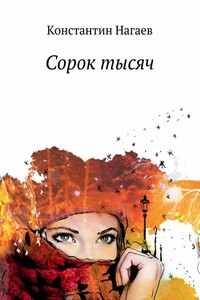
Есть такая избитая уже фраза «блюз простого человека», но тем не менее, придётся ее повторить. Книга 40 000 – это и есть тот самый блюз. Без претензии на духовные раскопки или поколенческую трагедию. Но именно этим книга и интересна – нахождением важного и в простых вещах, в повседневности, которая оказывается отнюдь не всепожирающей бытовухой, а жизнью, в которой есть место для радости.
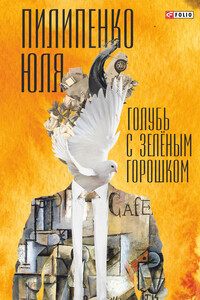
«Голубь с зеленым горошком» — это роман, сочетающий в себе разнообразие жанров. Любовь и приключения, история и искусство, Париж и великолепная Мадейра. Одна случайно забытая в женевском аэропорту книга, которая объединит две совершенно разные жизни……Май 2010 года. Раннее утро. Музей современного искусства, Париж. Заспанная охрана в недоумении смотрит на стену, на которой покоятся пять пустых рам. В этот момент по бульвару Сен-Жермен спокойно идет человек с картиной Пабло Пикассо под курткой. У него свой четкий план, но судьба внесет свои коррективы.